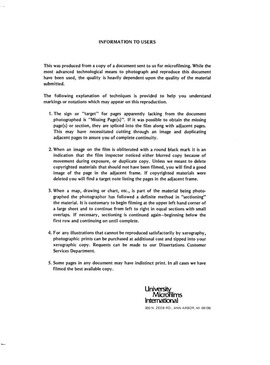| dc.contributor.author | Al Saadawi, Ibrahim S., | en_US |
| dc.date.accessioned | 2013-08-16T12:28:27Z | |
| dc.date.available | 2013-08-16T12:28:27Z | |
| dc.date.issued | 1981 | en_US |
| dc.identifier.uri | https://hdl.handle.net/11244/4923 | |
| dc.description.abstract | Therefore, allelopathy appeared to be the dominant component of the interference, with competition probably accentuating its effects. Polygonum aviculare was inhibitory to Gossypium barbadense L. and Sorghum bicolor (L.) Moench indicating that allelopathy is an important component of the interference by Polygonum against crop yields. In spite of the moderate allelopathic effects against cotton and sorghum it may still be possible to plant Polygonum aviculare between rows of these crops or to supply a light mulch between rows to control various weeds including Cyndon dactylon and some other weeds. | en_US |
| dc.description.abstract | Polygonum aviculare was observed to spread rapidly into heavy stands of Cynodon dactylon (L.) Pers. indicating a strong interference against Cynodon dactylon. Measurements of selected soil minerals and physical factors indicated that competition was probably not the chief cause of that interference. Soil collected under senescent Polygonum was very inhibitory to all test species except Sporobolus pyramidatus (Lam.) Hitch., suggesting the presence of inhibitory compounds. Tops and roots of Polygonum, root exudates, and leachate of the tops inhibited seed germination and seedling growth of more test species. | en_US |
| dc.description.abstract | Four inhibitors were isolated from living Polygonum plants, three of which were glucosides. Four different inhibitors were isolated from Polygonum residues and soil under Polygonum stands, and none of these occurred in soil from Cynodon dactylon stands. Three of these were glycosides containing both fructose and cellobiose as the sugars. Color reactions of all the inhibitors indicated that they are phenolic in nature. All the inhibitors reduced seed germination and/or seedling growth of Chenopodium album L. Moreover some of them inhibited growth of different strains of Rhizobium and Azotobacter. | en_US |
| dc.format.extent | vi, 48 leaves : | en_US |
| dc.subject | Agriculture, Plant Pathology. | en_US |
| dc.title | Allelopathic effects of Polygonum aviculare L. | en_US |
| dc.type | Thesis | en_US |
| dc.thesis.degree | Ph.D. | en_US |
| dc.thesis.degreeDiscipline | Department of Microbiology and Plant Biology | en_US |
| dc.note | Source: Dissertation Abstracts International, Volume: 42-11, Section: B, page: 4258. | en_US |
| ou.identifier | (UMI)AAI8209421 | en_US |
| ou.group | College of Arts and Sciences::Department of Microbiology and Plant Biology | |
